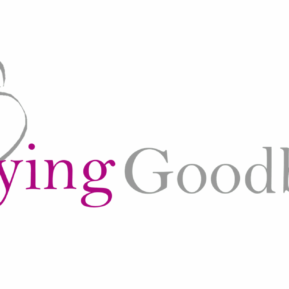Baby loss is not just a story of grief, of pain and tears; it's a story of love, of celebration, of becoming parents. It's a place where sorrow and love collide, where dreams lay shattered on the floor, but simultaneously a new view of life can be birthed. It is only when the silent scream has been released from your soul, when your heart has been broken in two, that you discover this depth of love and pain even exists....so when the tears are falling, smiles are also breaking forth.
You may be aware that we are currently in Baby Loss Awareness week; the United States Congress birthed this event in the USA in 1988. Congress authorised and requested the then President Ronald Regan to issue a proclamation in observance of this month. In 2002 baby loss awareness week was adopted by the UK, and each year it gets more and more attention.
I think a common misconception is that Baby Loss Awareness week is for bereaved parents, and I don't believe that's the case; let me explain what I mean by that. Bereaved parents don't need a special month or week to remember...they remember their child 365-days a year, whether the world acknowledges their loss or not.
Whether their baby has been lost early or late in pregnancy, at birth or in early years...they remember.
Baby loss awareness is about shining a light on this subject, which so many are afraid of and so many hide from.
Baby loss is a journey, a lifelong journey....and if you take part in Baby Loss Awareness week, let me say thank you. Thank you from me, but also thank you from every parent around the globe who has lost a child...because when you share their post, when you hit like, they will see you, they will hear you.
So what advice would I offer those who are grieving and those wanting to support the broken-hearted?
- Grieve at your own pace – There is no right or wrong way to grieve. Even though the stepping stones of grief are similar, how you navigate them is personal to you.
- There is no right or wrong way to survive occasions or events - If you want to attend events and participate in special occasions, I strongly encourage you to do so, but if you want to avoid them, that is equally fine. When it comes to events such as Mother's Day and Christmas, you decide what you are comfortable with and let those around you know what you will or won't be doing to mark the occasion.
- Keep talking – The brain comes to terms with trauma by talking about it, so the more you tell your story, the more your brain can finally accept what has happened, which will help you move forward.
- Don't try to get back to the person you were before your loss - Losing a baby or any loved one changes you, and the more you go looking for the person you once were, the harder it becomes. Instead, focus on the new person you are and move forward from this place.
- It is ok to not participate in awareness weeks - You don't need to feel any guilt for stepping back from social media; you are allowed to set your pain boundaries.
Advice for those wanting to offer support:
- When people are in a state of grief, they often struggle to reach out for support, so it's important to be direct - Don't just say, "Call me if you need anything." Offer to bring a cooked meal for the next week instead.
- Be willing and available to listen to the same story over and over again - When people are bereft, their brains find it hard to deal with the loss and trauma. Recovery starts with talking, so be a great friend or family member and sit and listen. Avoid making any unhelpful comments such as, "At least they are in a better place now." Listen – just listen!
- Don't be scared to ask how they are doing and to start the conversation - So many people fear raising the subject of grief and loss in case it triggers upset, but what it does is make people feel loved.
- Share posts and offer compassionate words of support - It can be challenging for people to share posts, quotes and their personal stories on social media or in private. If you feel able to re-share their words or just take the time to leave a kind message, it can make a world of difference to a bereaved parent.
- Educate yourself on loss terminology and how to support people well - This can make so much difference when you are talking and listening to bereaved friends. In 'The Baby Loss Guide', I have two chapters on what to say and what not to say, so have a read of that, and you will feel better equipped when offering your shoulder to someone to cry on.
Sign up today for unlimited access:
- Book appointments
- Expert advice & tips
- Premium videos & audio
- Curated parenting newsletters
- Chat with your bloss community
- Discounts & competitions
- Special events



Leave a Rating / Review
You must be logged in to post a comment.